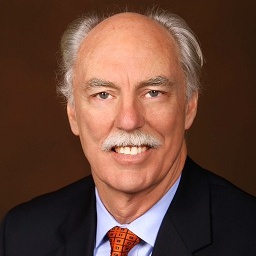
The annual SSA Symposium was held in York on the 5th and 6th November 2015, attended by more than 150 delegates from the UK and beyond. The Symposium brought together leading figures from the addictions field to present their work covering a spectrum of topics including psychiatry, psychology, sociology, and health policy. Below are a few highlights of the two days, with full audio presentations, slides and videos of sessions available soon.
Day one
Session 1 – Recovery
The 2015 Symposium began with an inspiring and heartfelt presentation from Lucy Rocca of Soberistas.com who spoke about her personal experience of recovery and the subsequent creation of an online support forum for people who want to change their drinking. Lucy described her own path of destructive drinking, influenced by the normalisation of the ‘ladette’ culture and heavy drinking within British and American Society (think Bridget Jones and Sex and the City). Lucy’s life was dramatically changed by a hospital visit after a heavy night’s drinking which drove her to seek help. However, Lucy felt that the type of support that drinkers such as herself (‘working mums from middle class backgrounds’) simply did not exist. As a keen writer, she began to write a blog about her situation, and out of this came Sobriestas.com, a website which offers a different approach to recovery. It focuses on community, health and wellbeing advice as well as interactive features providing targeted support for a previously hidden group of at-risk drinkers. The difference with Soberistas.com is that it caters for people who don’t feel that mainstream drug and alcohol treatment services are right for them, or who don’t associate with the Alcoholics Anonymous (AA) brand or the traditional conceptualisation of the ‘alcoholic’. With approximately 35,000 members signed up since 2012, the website has been a huge success and is continuing to prosper with media and ongoing research attention.
To listen to Lucy’s presentation in full, click HERE.
Lucy’s presentation was followed by Laura Willoughby MBE, founder of Club Soda, a website developed from evidence-based behavior change techniques to support people to stop or reduce their drinking. Laura, and elected Council member in north London, also felt that traditional methods to stop drinking such as AA just weren’t for her. She set out to create a support network which reflected her lifestyle, and instigate change at a societal level to create social environments where it is both acceptable and fun to not drink. Club Soda offers realistic and genuine advice on how ‘say no’ to drinking, whilst running initiatives such as ‘Sober Halloween’, ‘10 things to do without booze’ and ‘0% beer tastings’ to help motivate people to change their drinking behaviour. Laura spoke about how Britain’s identity is intrinsically tied into a drinking culture, and the need to reframe the language and ‘normalisation’ of drinking to give people the social permission and confidence to not drink.
To listen to Laura’s presentation in full, click HERE.
What was striking about both presentations was how drinking reduction support is moving into the digital age, reflected by the popularity of both sites. Heavy drinking has become ingrained into social norms and popular culture, to the extent that individuals don’t realise they are drinking harmfully. Here was a call for change at the societal level, making it both feasible and acceptable to have fun without alcohol. Equally, there is a gap in service provision for individuals who don’t fit into traditional treatment services and who need a different type of support.
Session 2 of the Symposium was dedicated to take-home naloxone and the potential to prevent overdose deaths. For a comprehensive overview of this session, please see the dedicated article HERE.
The key note speech

Thomas McLellan: ‘Recovery’ or ‘Disease Control’ is an expectable result of comprehensive, continuing addiction treatment.
The highlight of the symposium was the Society Lecture. Thomas McLellan, PhD, senior scientist and deputy director of The White House Office of National Drug Control Policy 2009-2011, and co- founder of the Treatment Research Institute Philadelphia, spoke about the need to integrate treatment for substance use disorders (SUDs) into mainstream medicine. He presented the case for treating SUDs no differently to other chronic health conditions such as diabetes, for the simple reason that they are too common and expensive to be ignored. The USA has 23 million people reporting problematic use or addiction, but only a tenth receive treatment. Furthermore, an estimated 40 million others are use drugs and alcohol at harmful levels, and it is this ‘sub-addiction’ level of use that has the biggest impact on the treatment of other medical conditions.
The economic argument is a strong one: harmful substance use costs the US around $80bn/year, whilst addiction treatment costs half that. This has influenced recent dramatic changes in federal law impacting on care provision. The 2009 Parity Act and the 2010 Affordable Care Act (often known as ‘Obama Care’) are revolutionary pieces of legislation that seek to elevate treatment of SUDs to the same level of insurance coverage as other chronic disorders. This change will have knock-on effects in tackling the stigma of SUDs, raising the profile of the issue within healthcare systems. For example, of the 164 medical schools in the US only 7 have a course in treatment of SUDs, a situation that needs to change. However, the most significant potential benefits from having an integrated approach to SUDs within medicine would be the delivery of better general healthcare, including an enhancement of doctors diagnostic and treatment management skills, and this would ultimately bring about reductions in costs of care.
Listen to the full key note speech HERE.
Day 2
Day two included the delegate and student poster presentations, a session on new findings from research funded by Alcohol Research UK, and a session on new research on cannabis.
The final session of the day explored the interface between science and politics from a number of perspectives, providing examples of both synergy and conflict. Contributors explored the extent to which research evidence has been adopted into mainstream policy and practice, and if not, why not? A running theme was that the relationship between evidence for best practice and implementation is complex, and is endlessly complicated by external pressures such as ‘austerity’, the influence of big Industry, and the unachievable demand for ‘more research’.
Prof Colin Drummond spoke about minimum unit pricing (MUP) as a means of controlling alcohol misuse. He discussed the impact of lobbying by the alcohol industry on Government Policy in the UK, and cited the example of the MUP Bill introduced in Scotland in 2011. This followed a report by Scottish Health Action on Alcohol Problems (SHAAP) that highlighted the relationship between affordability and consumption of alcohol. MUP is still not a reality in Scotland however, as the Bill is being challenged in court by the alcohol Industry. Although statistical modeling demonstrates that an MUP of 45 pence has a particularly strong positive effect on harmful drinkers, this evidence is being subjected to judicial scrutiny.
The story of industry opposition continued with Professor Ann McNeill, speaking about plain packaging of cigarette packs to reduce smoking. With one in five of the adult population still smoking, there is plenty of evidence to suggest that marketing is the key to uptake. The cigarette pack is one of the few advertising routes still available for tobacco manufacturers, and has been called the ‘silent salesman’. Every time a smoker pulls out a cigarette pack, they are inadvertently advertising the brand of tobacco, and a range of sophisticated designs have been tailored to particular markets. Research suggests that tobacco packaging and branding is attractive to children, makes health warnings less salient, and misleads consumers about relative risks.
Prof McNeill emphasised the substantial tobacco industry opposition to plain packaging, with large budgets for advertising campaigns and legal challenges. Once again the evidence-base has been challenged as ‘not good enough’, with the problem for the research community being that you simply can’t conduct a randomised controlled trial (the gold standard of research) at a population level.
Like the case of MUP for alcohol, the pathway to the introduction of plain packaging in the UK has been beset with obstacles, but it is currently planned for May 2016. Australia have introduced it, for which early results are trickling through but are not conclusive. However, as Professor McNeill pointed out, advocacy is key to build and measure public, political and media support.
The problem of getting good evidence into drug treatment policy was discussed by Annette Dale Perera, highlighting political opposition to opioid substitution treatment (OST). Illicit drug users tend to be a highly marginalised and stigmatised group, who receive minimal public sympathy. Annette highlighted the oscillating political positions on drug treatment, typified by the recovery versus abstinence argument. Between 2001 and 2010 UK policy drove a big increase in OST, in pursuit of a crime-reduction agenda. This was supported by a large evidence base supporting OST as the most effective intervention for reducing heroin use and associated problems such as death by accidental overdose and acquisitive crime. However, the situation reversed in 2010 with a change of Government, with a new drive for abstinence presenting OST as a negative force. The clinical and research communities are concerned about the adverse impact this may have, combined with increasing austerity measures leading to large cuts in funding for drug treatment services. The transmission of blood borne viruses, rates of crime and overall health of a vulnerable population group need to be carefully monitored.
There were further presentations by Deborah Arnott about the advantages and challenges of the e-cigarette, Prof Sheila Bird about naloxone to prevent accidental opioid overdose on release from prison, and Judith Harwin on the Family Drug and Alcohol Court. What was clear from all of the presentations, regardless of intervention target or healthcare concern, was the challenge of implementing evidence-based treatments, services and policies, in a politically fraught and financially difficult climate. Providing evidence of harms sufficient to hold up to the financial and legal might of an industry with large profits at stake is a never-ending challenge for addiction researchers. Synergy does exist to some degree, but conflict still remains, and the battle to reduce addiction-related harm continues.
Listen to all of the presentations from the conference HERE.
The conference ended with the presentations of the 2015 poster presentations. Congratulations to:
Dr Hannah Farrimond, winner of the Research Project category, for her poster: A typology of vaping: Identifying differing beliefs, motivations for use, identity and political interest amongst e-cigarette users.
Olivia Watkins in the Student-led Research category for her poster: Fitting a naloxone take home kit into our life to save lives.
Dr Luca Polledri in the Audit and Service Innovation category for his poster: Treatment completion and complications in 80 patients receiving an outpatient medically assisted GHB/GBL detoxification.
See you all next year!
The opinions expressed in this commentary reflect the views of the author(s) and do not necessarily represent the opinions or official positions of the Society for the Study of Addiction.